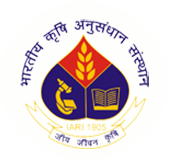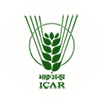Insect pest management and ecological research / G.H. Walter.
Material type: TextPublisher: Cambridge : Cambridge University Press, 2003Description: 1 online resource (xii, 387 pages) : digital, PDF file(s)Content type:
TextPublisher: Cambridge : Cambridge University Press, 2003Description: 1 online resource (xii, 387 pages) : digital, PDF file(s)Content type: - text
- computer
- online resource
- 9780511525612 (ebook)
- Insect Pest Management & Ecological Research
- 632/.7 21
- SB931 .W25 2003
Title from publisher's bibliographic system (viewed on 05 Oct 2015).
1. Introduction -- pt. 1. The place and nature of insect ecology research for IPM -- 2. Pest management as an applied science: the place of fact, theory and application -- 3. Historical trends in pest management: paradigms and lessons -- 4. IPM: a diverse, interrelated suite of socioeconomic and scientific problem-solving activities -- 5. An ecological underpinning for IPM -- pt. 2. Specific directions in insect ecology research for IPM -- 6. Understanding species: good taxonomy, sexual species and pest management -- 7. Polyphagous pests, parasitoids and predators: trophic relations, ecology and management implications -- 8. Pre-release evaluation and selection of natural enemies: population and community criteria.
Insect Pest Management and Ecological Research explores the ecological research required for development of strategies to manage pest insects, with particular emphasis on the scientific principles involved in the design and conduct of pest-related research. Although the connection between Integrated Pest Management (IPM) and ecology has been long appreciated, their specific relationship to one another has remained vague until now. Here, Gimme Walter develops the first general model of the entomological research requirements of IPM. He shows how to navigate through the diversity of options presented by current ecological theory, emphasising pest situations. Besides theory and principle, the book includes practical advice on understanding and investigating species, examines the ecological problems associated with polyphagous pests and beneficial species, and scrutinises ways suggested to improve insect biological control. As such, it will be an important resource for graduate students and researchers, in IPM, insect pest management, entomology, ecology and crop protection.


There are no comments on this title.